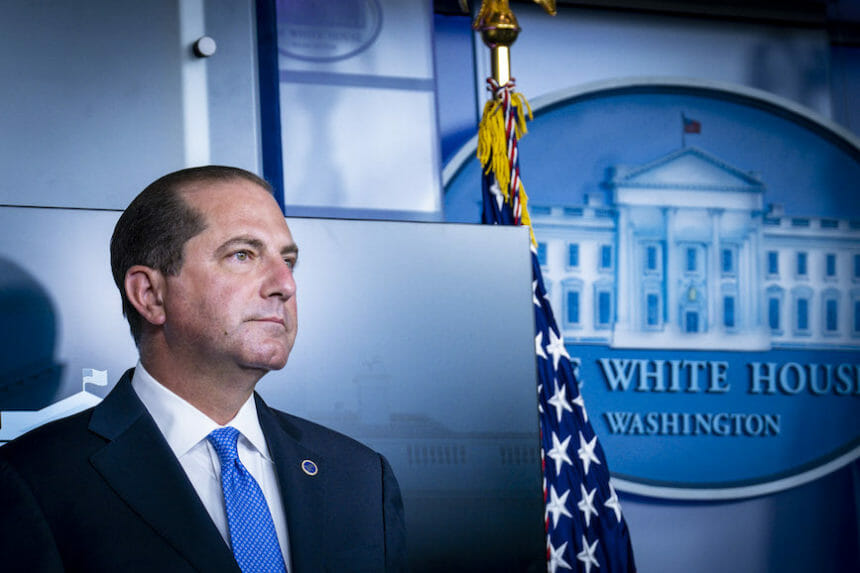The Department of Health and Human Services is progressing with the $250 million “defeat despair” COVID-19 public education campaign but without celebrity participation.
The campaign, awarded to Fors Marsh Group in September, was put on hold in early October when Health and Human Services Secretary Alex Azar called for a review of the initiative.
Congressional Democrats and others had criticized the campaign — the brainchild of HHS Assistant Secretary for Public Affairs Michael Caputo — as an attempt to boost President Donald Trump’s image before the election. Caputo has since taken a medical leave of absence.
That review has been completed, and the program’s manager, HHS Deputy Assistant Secretary for Public Affairs and Human Services Mark Weber, said he was given the go-ahead this week to proceed with the campaign.
However, the celebrity-based portion of the campaign, in which public health officials such as Dr. Anthony Fauci were to be paired with celebrities and influencers, has been canceled. The new version will more closely resemble a traditional public health campaign, Weber said.
More than 270 celebrities were vetted for participation in the effort, but only 10 were ultimately approved after dozens of others were crossed off the list due to their stances on same-sex marriage, gun control and other issues, according to Politico.
“The office of assistant secretary for public affairs plans to move forward with the science-based approach for public education put forward by the Fors Marsh Group,” Weber said. “The work with members of the entertainment industry conducted by Atlas Research will not continue, and that contract will be canceled.”
After ordering the review, Azar convened a panel of 10 communications and public health leaders to review the original campaign — “clearly that didn’t work out,” Weber said — as well as another approach.”
That panel included Fauci, Surgeon General Dr. Jerome Adams; Dr. Anne Schuchat, principal deputy director of the Centers for Disease Control and Prevention; and other leaders and communications personnel from the National Institutes of Health, the Office of Minority Health and the Indian Health Service.
After meeting on October 9, Weber said the panel reviewed both versions of the campaign twice before recommending the new direction.
The initiative, he added, will be focused on basic COVID-19 public health messaging about masks, social distancing and handwashing, along with a significant effort to convince the public to accept COVID-19 vaccines.
“What I’m calling it right now is the moveable middle,” Weber said. “A large portion of the public has said they will get an [Food and Drug Administration]-approved vaccine, say roughly a third. While roughly a third are questioning it and roughly another third say ‘Hell no. I won’t do it.’”
“Using multiple channels and partnerships with healthcare organizations, churches, religious groups as well as suitable messaging through the media, we’re hoping to get the moveable middle into the yes category,” he added. “Not by telling them to do it, but by giving them the information they need to make a decision.”
The scientific messages delivered by the campaign will be vetted by “every agency director” in the HHS, Weber said, though he added that won’t be needed for basic health information about masks and social distancing. Those messages could roll out in “a matter of weeks,” Weber said, though he will first meet with members of Congress to convince them of the plan.
Weber notified the rest of HHS about the decision on Friday afternoon and spelled out their roles and responsibilities. He said that he and other HHS officials are hoping to brief congressional leaders next week.
“I’ll be sharing with them the process we went through…and hopefully answer questions so they can get behind this project rather than questioning it,” Weber said. “I expect a spirited conversation.”







